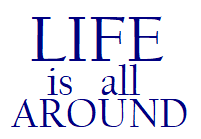Politics is part of our lives every day. Whether we are interested in it or not, politics determines the quality and future of our daily lives. We can choose to be politically active and help make everyone’s lives better, or we can choose to be indifferent. Whatever we choose, the responsibility remains.
What does politics mean?
Before we talk about politics, it can be useful to touch on the meaning of politics. On its foundation, politics means the making and execution of policies. The reason we make policies is so that the complex web of human transactions will happen smoothly. In other words, politics is here to make our lives better.
A politician is supposed to make and execute policies for the nation or the international community so that the nation and the world can function smoothly. In other words, a politician is capable of determining the life of millions of people.
It is also important to note that being a politician is not easy. A politician requires a number of skills to be successful. Sometimes, the skill set needed to come into power can differ from the skills needed to be successful. This points to a flaw in the system, but democracy is the best system we have found. Thus, we are naturally grateful to it, especially when comparing it to other regimes.
The responsibility of leader and voter
A politician is someone who has been given the responsibility and privilege that he can decide in which direction all our lives go. This is a privilege and a tremendous responsibility at the same time. It is a big responsibility for this person, but it is also a fundamental responsibility of us all who cast our votes and select our leaders.
When we are to exercise this privilege and responsibility of ours, we usually make a decision based on many factors. We may be members of a particular party, and then there is not much to think or talk about. Or we may be just interested in finding and selecting the best possible future leader. In the latter scenario, we are open to discussion.
In that case, when we are not predisposed to vote for a specific person or party, then we want to know on what to base our decisions. To make matters a bit easier, there is no right or wrong decision. Think about it. Unless someone comes from the future and knows what a particular president or party will do when in power, we are stuck with uncertainty.
Choosing the next leader
Choosing the next leader is not a straightforward decision. We are presented with different options. If we want to be objective, we try to leave aside our personal opinions about each candidate and, instead, focus on what each prospective leader has done in the past.
By looking at the past, we project whether that candidate would be a successful politician and leader. After all, this is what businesses do. They look at your CV, and they decide if you are good enough. Inevitably there is some judgment; unavoidably, they can make a wrong decision. However, the process they use to decide is straightforward.
The same way business is about profit, politics is about well-being. A successful hire will help the corporation make money. And it makes sense to use a similar framework for politics. When corporations look at one’s past to determine if they are a good candidate, we can do the same for choosing our next leader. They do it for money; we can do it to make everyone’s lives better.
Take away:
- Politics is about making our lives better
- The elected politician has a big responsibility to improve our lives. However, our responsibility as voters comes first and is equally, if not more, important.
- We can look at the past of each candidate to see if they would make a good leader, the same way corporations examine your CV to see if you will be a good hire



